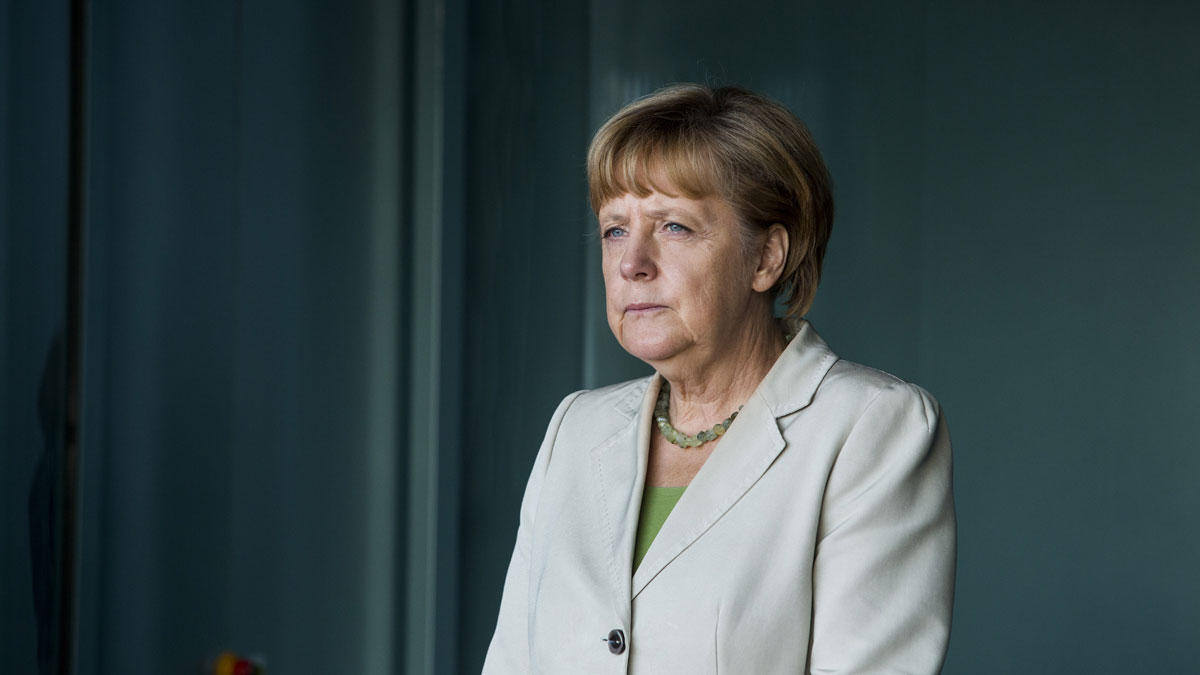How Angela Merkel ran out of political lives
German Chancellor will step down in 2021 after suffering a string of defeats

A free daily email with the biggest news stories of the day – and the best features from TheWeek.com
You are now subscribed
Your newsletter sign-up was successful
After 13 years in power, Angela Merkel has announced she will not seek re-election when her term as German Chancellor ends in 2021 and will stand down as head of the Christian Democratic Union (CDU).
“With this decision, I am trying to do my part to allow the federal government to function well again,” she said yesterday after the CDU suffered another electoral setback.
The 64-year-old veteran politician, who has been leading a fractious coalition for over a year, said she took “full responsibility” for her party’s poor performance in the key central state of Hesse on Sunday.
The Week
Escape your echo chamber. Get the facts behind the news, plus analysis from multiple perspectives.

Sign up for The Week's Free Newsletters
From our morning news briefing to a weekly Good News Newsletter, get the best of The Week delivered directly to your inbox.
From our morning news briefing to a weekly Good News Newsletter, get the best of The Week delivered directly to your inbox.
“As the Chancellor and the chair of the Christian Democrats, the buck stops here, both for successes and failures,” Merkel says.
The CDU and its coalition partner, the Social Democratic Party (SPD), lost huge numbers of supporters to the far-right Alternative for Germany (AfD) and the Greens in this year’s regional elections.
Public support for the Chancellor has also fallen rapidly. A poll published earlier this month revealed that 56% of Germans believe she should not remain in power.
Announcing her decision to stand down as party leader in December, Merkel “did her best to maintain her famous poker face but at times she looked rather sad as she announced what amounted to an official - albeit drawn-out - farewell to German politics”, says the BBC’s Jenny Hill.
A free daily email with the biggest news stories of the day – and the best features from TheWeek.com
Where did it all go wrong?
During her time in office, which overlapped with four French presidents and four British prime ministers, Merkel survived a number of international crises.
Nicknamed “Mutti” (Mum), Merkel was well-regarded by the public and “widely seen as a safe pair of hands, steering the eurozone’s largest economy through the financial crisis”, CNBC reports.
But her decision to open Germany’s borders to more than one million migrant and refugees in 2015 - though praised by human rights groups - angered conservative politicians and voters.
Many commenters say the open-door policy was the beginning of the end for the Chancellor, who was accused of ignoring public opinion and being part of the “out-of-touch liberal elite”.
The decision arguably contributed the rapid rise of the nationalist AfD, which is now the largest party in the Bundestag outside of the centre-left SPD and Merkel’s party.
But Quentin Peel, associate fellow with the Europe Programme at Chatham House, says Merkel has been deliberately pushed out of the party by disgruntled conservatives in the CDU.
“Merkel's loss of authority is due to the Conservatives within her own party,” he argues. “They've always hated her but couldn't do anything about it because she was almost single-handedly responsible for getting most of them re-elected.”
And although the Chancellor is hoping to stay in power for the next few years, the BBC’s Jenny Hill says the vultures are already circling.
“If one of Mrs Merkel's adversaries prevails as party leader, her chancellorship becomes uncomfortable and possibly untenable,” she says.
-
 What are the best investments for beginners?
What are the best investments for beginners?The Explainer Stocks and ETFs and bonds, oh my
-
 What to know before filing your own taxes for the first time
What to know before filing your own taxes for the first timethe explainer Tackle this financial milestone with confidence
-
 The biggest box office flops of the 21st century
The biggest box office flops of the 21st centuryin depth Unnecessary remakes and turgid, expensive CGI-fests highlight this list of these most notorious box-office losers
-
 Epstein files topple law CEO, roil UK government
Epstein files topple law CEO, roil UK governmentSpeed Read Peter Mandelson, Britain’s former ambassador to the US, is caught up in the scandal
-
 Iran and US prepare to meet after skirmishes
Iran and US prepare to meet after skirmishesSpeed Read The incident comes amid heightened tensions in the Middle East
-
 Israel retrieves final hostage’s body from Gaza
Israel retrieves final hostage’s body from GazaSpeed Read The 24-year-old police officer was killed during the initial Hamas attack
-
 China’s Xi targets top general in growing purge
China’s Xi targets top general in growing purgeSpeed Read Zhang Youxia is being investigated over ‘grave violations’ of the law
-
 Panama and Canada are negotiating over a crucial copper mine
Panama and Canada are negotiating over a crucial copper mineIn the Spotlight Panama is set to make a final decision on the mine this summer
-
 Why Greenland’s natural resources are nearly impossible to mine
Why Greenland’s natural resources are nearly impossible to mineThe Explainer The country’s natural landscape makes the task extremely difficult
-
 Iran cuts internet as protests escalate
Iran cuts internet as protests escalateSpeed Reada Government buildings across the country have been set on fire
-
 US nabs ‘shadow’ tanker claimed by Russia
US nabs ‘shadow’ tanker claimed by RussiaSpeed Read The ship was one of two vessels seized by the US military